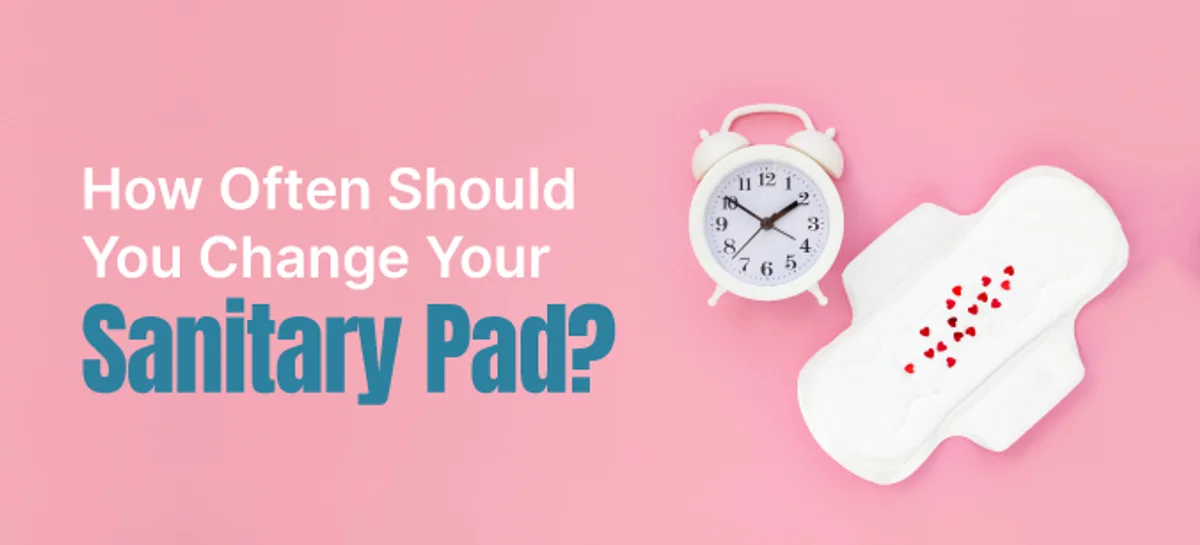- Home
- Blog
- Women Care
Vaginal Health: Five Tips To Maintain Reproductive Hygiene in Women
Women Care
Vaginal Health: Five Tips To Maintain Reproductive Hygiene in Women
By Apollo 24|7, Published on- 06 October 2022, Updated on -10 November 2022
Share this article
0
0 like

Did you know that according to the Indian Society of Assisted Reproduction, nearly 27.5 million couples suffer from infertility in India? While several risk factors can result in infertility, the biggest one is poor reproductive hygiene, especially in women. Reproductive hygiene plays a major role in not only maintaining the reproductive and sexual health of women but also improving their overall well-being. It can not only affect fertility and sex drive but also reduce your ability to achieve sexual satiety. Don't know how to ensure good reproductive hygiene? Well, here are some useful tips you can follow!
1. Make Vaginal Cleaning a Part of Your Everyday Routine
Poor vaginal hygiene can lead to the growth of harmful bacteria and severe infections. If left untreated, these infections can result in adverse outcomes like infertility, difficult pregnancy, and STIs such as chlamydia, human papillomavirus (HPV), gonorrhoea, and human immunodeficiency virus (HIV). For vaginal cleaning, all you need to do is clean it gently with water 2-3 times a day and wipe it with a soft towel. Avoid using any soap or other scented feminine hygiene products like wipes, scrubs, or deodorants. These products often contain several harsh chemicals, which can disturb the healthy balance of bacteria in the vagina and change its natural pH, leading to irritation and the growth of unhealthy bacteria.

2. Only Engage in Safe Sex
Unprotected sex carries a massive risk of sexually transmitted infections (STIs) like chlamydia, herpes, gonorrhoea, warts, human immunodeficiency virus (HIV) and syphilis. Using protection, like condoms, every time you engage in sexual activity is the most effective way of preventing vaginal infections, STIs, and unwanted pregnancies. Moreover, if your partner suffers from an STI, it is strongly recommended to abstain from sex until the symptoms subside or as your doctor advises.
3. Change Sanitary Pads Every 4-6 Hours
If your sanitary napkins or tampons are not changed for long periods, you become susceptible to bad odour, skin rashes, and infections. Women with normal blood flow during menstruation should change their sanitary napkins after 4-6 hours, even on the days when they have light blood flow. In the case of women who have a heavy flow, changing sanitary pads after every 3-4 hours is advisable. If you use tampons, it is recommended to change them every 6 hours without fail. Additionally, you should also clean the area every time you head over to a washroom during menstruation. Women who use reusable cloth pads should wash and dry the pad properly before use.

4. Use Lubricants
While vaginal lubrication occurs naturally in the state of arousal, some women may lack it. In such cases, using lubricants can prevent the vagina from getting irritated during sex. You can either use natural ingredients like aloe vera gel, olive oil, and coconut oil or try water-based lubricants available over the counter. Do not use baby oil, petroleum jelly or other lubricants containing glycerine as they can irritate or damage vaginal cells, putting you at the risk of infections and STDs.
5. Always Wear Dry Undergarments and Comfortable Clothes
Wet undergarments can not only cause a bad odour but also increase the risk of vaginal infections. Moreover, it is advisable to wear comfortably fitted undergarments crafted with breathable fabrics like cotton. Tight innerwear made from synthetic fabrics can reduce air circulation, causing excessive sweating, and thereby increasing the risk of yeast or bacterial infections. For the same reason, it is wise to avoid wearing tight clothes like leather pants, wet bathing suits and tight spandex for long periods. Also, make sure to change your clothes after exercising or engaging in any activity, which can be sweaty.

These are just some of the many things you can do to ensure good reproductive hygiene. Moreover, if you experience any signs or symptoms of reproductive health issues like irregular periods, coloured or excessive vaginal discharge, or a stinky smell, then consult with an Apollo doctor right away to receive a proper diagnosis and treatment. Need an expert opinion?
Consult an Apollo Gynaecologist
Medically reviewed by Dr Sonia Bhatt.
Services
Women Care
Leave Comment
Services
Recommended for you

Women Care
Are Menstrual Cups Safe?
Menstrual cups are a safer alternative to napkins and tampons. This article will explore the pros and cons of using menstrual cups and their potential health benefits.

Women Care
Ensuring Safe Motherhood: How To Take Care Of Pregnant Women?
Pregnant women need a proper diet, adequate exercise, and the right supplements to ensure complete wellbeing. Read on to know more about pregnancy dos and don'ts.

Women Care
8 Steps for Woman's Personal Care Regimen
There is no shortcut to success. The same applies to skincare and hair care. Even though you apply makeup and hair styling products, the problems will pop out. So, follow a minimalistic approach to a woman’s personal care regimen. #ApolloPharmacy #WithHerAtEveryStage #Skincare #HairCare #PersonalCareRegimen
Subscribe
Sign up for our free Health Library Daily Newsletter
Get doctor-approved health tips, news, and more.


